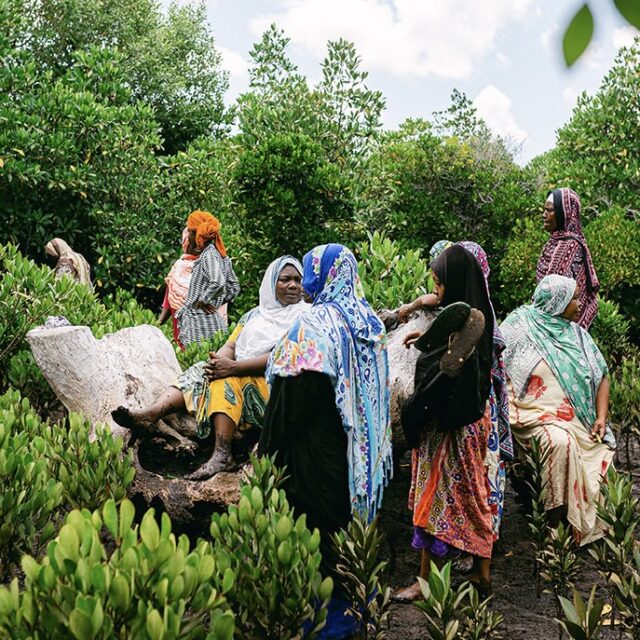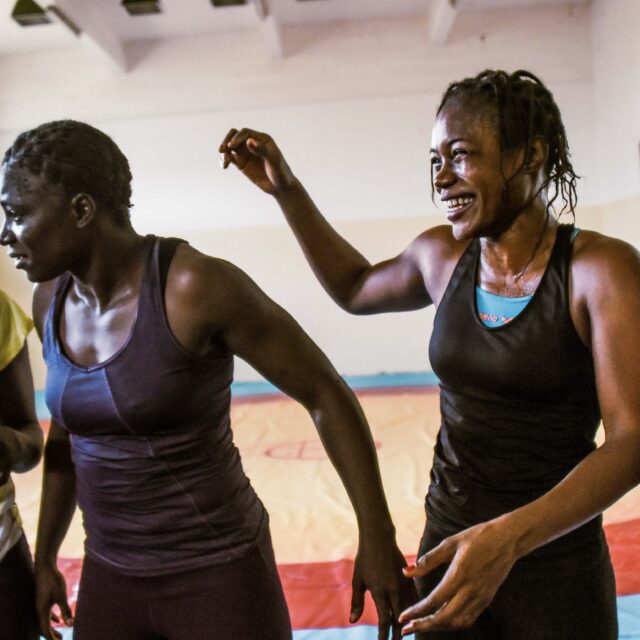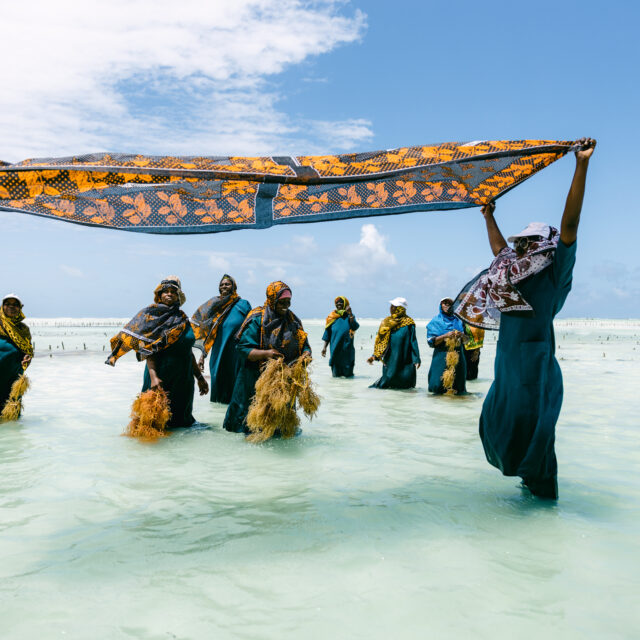Our guest blogger today is Jennifer Abrahamson from the International Center for Research on Women.

Susheela and her children. Photo: Jennifer Abrahamson / ICRW
The Indian state of Haryana, a short drive from the capital New Delhi, is known for its social conservatism, a declining female population due to sex selection, and more recently, for a number of brutal rapes reported by the national media.
As I would soon learn, life in rural India is full of contrasts and contradictions. The first family I met wanted to tell me about a local unmarried heroine who at 25 took home a gold medal after winning an international wrestling competition.
“If she’d gotten married, then her concentration would have been on the household and her husband, but she didn’t, and now she’s doing really well,” Susheela, a 37-year-old mother of four daughters, told me.
Life is hard for Susheela but she still smiles a lot. She even smiles when the conversation turns to more serious matters: what it was like for her to be married as an illiterate child and move in with a strange family, in a strange village, miles from home.
“At 14, what had I seen? I never even went to school – parents didn’t send girls to school back then. I came here and my in-laws said ‘work in the fields,’ so I worked in the fields. Because I suffered, I didn’t want them to do the same. I thought it would be better if at least my daughters studied,” Susheela says.
Despite this recognition, marrying their own teenage daughters off as soon as possible remains a priority for Susheela and her husband, due to deeply rooted cultural norms.
The International Center for Research on Women (ICRW) is currently evaluating an innovative government program that used cash incentives to encourage parents like Susheela to delay marrying their daughters until they turn 18 – with the added hope that attitudes about a girl’s inherent value would improve.
One of Susheela’s daughters, 17-year-old Kirin, is among the first girls to take part in the effort, called Apni Beti Apna Dhan (ABAD) – Our Daughter, Our Wealth. ICRW’s findings will be released in late 2013.

Sisters Heena, 19, and Kirin, 17 at their home near Bhiwani, India. Photo: Jennifer Abrahamson / ICRW
For now, Kirin and her older sister Heena, who is 19, remain unmarried. Later this year they will have both completed secondary school. Once Kirin gets her payment (worth $350-$500) the two girls will be immediately married in a joint wedding.
The girls have ambitions to continue on to college and start a career as teachers before settling down. Yet they seemed unsure if they would be able to lead a life outside of the home, despite their parents’ desire for them to study further.
“If our parents-in-law say we can’t continue our studies or get jobs, then we’ll have to listen to them and our dreams will only stay a dream,” Heena says. Kirin adds “I become hopeless and my heart breaks at the thought of not going to college. Boys have all the permission, they can go, but not girls, parents are scared. We want to go to Bhiwani town to study full time. But we can’t because of ‘the situation.’”
“The situation” refers to a spate of horrific rapes in the past several months in Haryana. In one of the most severe cases, eight men raped a 16-year-old girl. The powerful Khap panchayats which govern social affairs in Haryana, proposed a solution: lower the legal age of marriage for girls. Although they do not have the authority to do so, girls fear they will incur an additional cost for this escalation in violence against them.
“It is always the girl who is blamed. One does the bad deed, and the other always pays the price,” Heena says.
There is still a long road ahead to gender equity in rural India. The fact that Heena and Kirin will both finish secondary school, and are still living at home, signals that a generational shift has occurred. At the very least, the quality of these educated sisters’ lives will undoubtedly far exceed that of their mother. Even if it’s unlikely they’ll ever become world-class wrestlers.
ONE CEO Michael Elliott will this week participate in the ICRW event “Rude Awakening: the complex epidemic of violence young women and girls face in India and beyond” in Washington DC on 7 March to mark International Women’s Day. Follow this event on Twitter from 18.30-21.00 EST (23.30 -02.00 GMT) .
To learn more about how ICRW is working to “change the course for adolescent girls worldwide” visit the Turning Point campaign.


